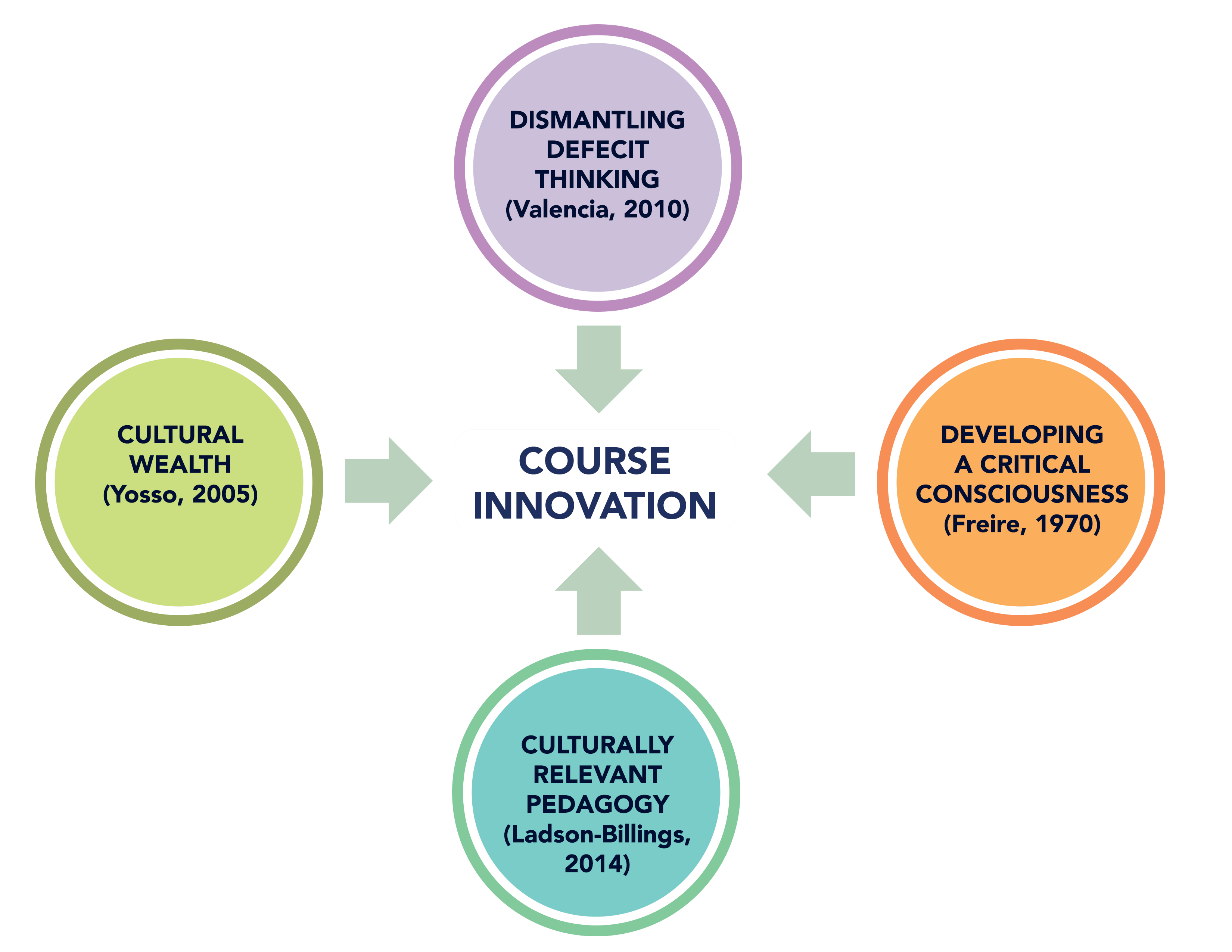Course Innovation
Through faculty development workshops, Faculty Participants are encouraged to redesign courses that emphasize a critical consciousness in students, recognizes cultural wealth, and dismantle deficit thinking. We encourage this through two modes: (1) redesigned gateway courses and (2) CESL courses.

- First, we follow an assets-based approach to faculty professional development and the creation of new curricula by involving community leaders of social organizations.
- By interacting with community leaders of social organizations, faculty learn more about the students they serve and the communities they come from. Through authentic dialogue, faculty begin to develop a critical consciousness that enables them to go beyond the traditional teacher-student interactions and move towards student-centered and community-based research, teaching and service.
- This new knowledge gained from the community includes cultural wealth that faculty can nourish to build on their students’ strengths to facilitate research, teaching and learning.
- Finally, faculty learn to place their students’ social, cultural and linguistic backgrounds at the center of the learning process.
